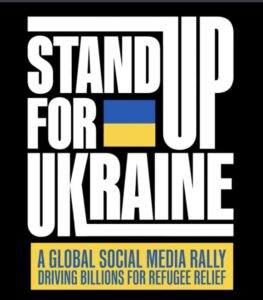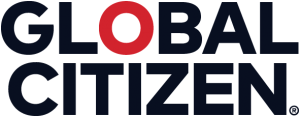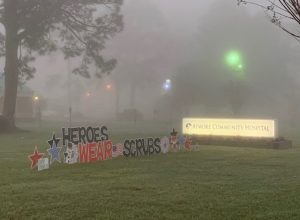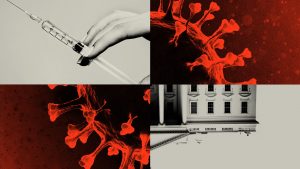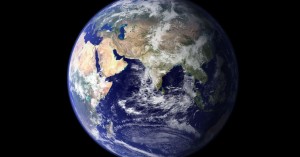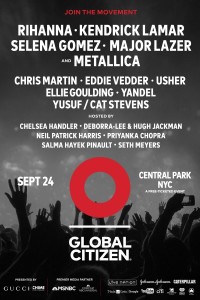Global Citizen
🌻
April 2, 2022‘For never was a horror experienced without an angel stepping in from the opposite direction to witness it with me.’
-Rilke
This is an incredible time where the opportunity to bring in miracles and magic is strong.
Power comes from spirit and your essence and is fed and supported by the elements and energies more powerful than you such as the sun, the earth, nature, the stars, your imagination etc. You can be empowered or allow yourself to be disempowered through a trauma, karma or lessons, but another person cannot truly give or take away your power as they cannot ever truly give you any.
We have a tremendous opportunity to move through this and access the amazing landscape of love.
-Power Path
Krista Tippett reflecting on her time with poet and Pulitzer Prize winner Mary Oliver.
Life had moved forward, as it does. It was now composed of ingredients, as it always is, that neither she nor I would have been able to imagine.
‘We’re in yet another moment in the life of the world where we might unsee the beauty or imagine it overshadowed, defeated, or simply less powerful than what would steal it from us, blot it out. What a gift to re-summon Mary Oliver’s presence for this time. I hope you feel that, too.”
Listen.
From Global Citizen ⭕️
APRIL 8TH, 2022
Center for Action & Contemplation
‘Our fears offer us an invitation to engage with the discomfort of the inner places. Will you give your fear a chance to speak to you?
Ask, What is this trying to show me? or What else might be going on? Give yourself some time, and delve into the fear.’
Catastrophization
And it’s exhausting. Catastrophe fatigue sets in, and we end up losing interest and drifting away, until the next emergency arrives.
Catastrophization ends up distracting us from the long-term systemic work we signed up to do. It’s a signal that we care about what’s happening right now, but it also keeps us from focusing on what’s going to happen soon.
The best way to care is to persist in bending the culture and our systems to improve things over time.
-Seth Godin
The unemployed are tasked planting trees. ?
May 22, 2020Pakistan Is Giving Tree-Planting Jobs to Workers Unemployed Due to COVID-19
The work is part of an ambitious project in Pakistan to plant 10 billion new trees.
by, Brandon Wiggins
Pakistan is helping daily workers who have been laid off as a result of COVID-19 by giving them jobs planting trees, according to the Thomson Reuters Foundation (TRF).
The initiative is part of Pakistan’s 10 Billion Tree Tsunami Programme, an ambitious forest restoration project, and provides a template for the type of “green recovery” that countries can embark upon in the aftermath of the COVID-19 pandemic.
“Due to coronavirus, all the cities have shut down and there is no work. Most of us daily wagers couldn’t earn a living,” a construction worker named Abdul Rahman told TRF.
While Rahman’s wages of 500 rupees ($3) per day are around half of what he could have made “on a good day” as a construction worker, he said it was enough to get by.
“All of us now have a way of earning daily wages again to feed our families,” he told TRF.
NYTimes
Prayers.
‘A pakistan International Airlines plane with at least 91 people aboard crashed in a residential area near the airport in Karachi, officials said.’
Endarkment
March 27, 2020“One does not become enlightened by imagining figures of light,” Carl Jung wrote, “but by making the darkness conscious.” Reading this, I realize that in a whole lifetime spent with seekers of enlightenment, I have never once heard anyone speak in hushed tones about the value of endarkenment. -Barbara Taylor Brown, author & Episcopal priest
And so even now, as light gives way to darkness, I know that once again light is born from darkness. Those who read out to help strangers are living out the oneness that is part of our spiritual DNA. -Science of Mind
What are we only now coming “to know” through this time of not-knowing?
Either we will love and help one another or we will hate and attack one another, in which latter case we will all be one another’s hell. Perhaps Sartre was not far wrong in saying that where freedom is abused, society itself turns into heel.. (L’enfer c’est les autres.”) -Thomas Merton
Yuval Noah Harari: the world after coronavirus
This storm will pass. But the choices we make now could change our lives for years to come.
Humankind is now facing a global crisis. Perhaps the biggest crisis of our generation. The decisions people and governments take in the next few weeks will probably shape the world for years to come. They will shape not just our healthcare systems but also our economy, politics and culture. We must act quickly and decisively. We should also take into account the long-term consequences of our actions. When choosing between alternatives, we should ask ourselves not only how to overcome the immediate threat, but also what kind of world we will inhabit once the storm passes. Yes, the storm will pass, humankind will survive, most of us will still be alive — but we will inhabit a different world.
Many short-term emergency measures will become a fixture of life. That is the nature of emergencies. They fast-forward historical processes. Decisions that in normal times could take years of deliberation are passed in a matter of hours. Immature and even dangerous technologies are pressed into service, because the risks of doing nothing are bigger. Entire countries serve as guinea-pigs in large-scale social experiments. What happens when everybody works from home and communicates only at a distance? What happens when entire schools and universities go online? In normal times, governments, businesses and educational boards would never agree to conduct such experiments. But these aren’t normal times.
The coronavirus epidemic is thus a major test of citizenship. In the days ahead, each one of us should choose to trust scientific data and healthcare experts over unfounded conspiracy theories and self-serving politicians. If we fail to make the right choice, we might find ourselves signing away our most precious freedoms, thinking that this is the only way to safeguard our health.
[full read]
https://www.ft.com/content/19d90308-6858-11ea-a3c9-1fe6fedcca75
How the Pandemic Will End
The U.S. may end up with the worst COVID-19 outbreak in the industrialized world. This is how it’s going to play out.
Story by Ed Yong
The testing fiasco was the original sin of America’s pandemic failure, the single flaw that undermined every other countermeasure. If the country could have accurately tracked the spread of the virus, hospitals could have executed their pandemic plans, girding themselves by allocating treatment rooms, ordering extra supplies, tagging in personnel, or assigning specific facilities to deal with COVID-19 cases. None of that happened. Instead, a health-care system that already runs close to full capacity, and that was already challenged by a severe flu season, was suddenly faced with a virus that had been left to spread, untracked, through communities around the country. Overstretched hospitals became overwhelmed. Basic protective equipment, such as masks, gowns, and gloves, began to run out. Beds will soon follow, as will the ventilators that provide oxygen to patients whose lungs are besieged by the virus.
The White House is a ghost town of scientific expertise. A pandemic-preparedness office that was part of the National Security Council was dissolved in 2018. On January 28, Luciana Borio, who was part of that team, urged the government to “act now to prevent an American epidemic,” and specifically to work with the private sector to develop fast, easy diagnostic tests. But with the office shuttered, those warnings were published in The Wall Street Journal, rather than spoken into the president’s ear. Instead of springing into action, America sat idle.
After 9/11, the world focused on counterterrorism. After COVID-19, attention may shift to public health. Expect to see a spike in funding for virology and vaccinology, a surge in students applying to public-health programs, and more domestic production of medical supplies. Expect pandemics to top the agenda at the United Nations General Assembly. Anthony Fauci is now a household name. “Regular people who think easily about what a policewoman or firefighter does finally get what an epidemiologist does,” says Monica Schoch-Spana, a medical anthropologist at the Johns Hopkins Center for Health Security.
The lessons that America draws from this experience are hard to predict, especially at a time when online algorithms and partisan broadcasters only serve news that aligns with their audience’s preconceptions. Such dynamics will be pivotal in the coming months, says Ilan Goldenberg, a foreign-policy expert at the Center for a New American Security. “The transitions after World War II or 9/11 were not about a bunch of new ideas,” he says. “The ideas are out there, but the debates will be more acute over the next few months because of the fluidity of the moment and willingness of the American public to accept big, massive changes.”
[full read]
https://www.theatlantic.com/health/archive/2020/03/how-will-coronavirus-end/608719/
7 Resources for Reliable Information About Coronavirus
1. The World Health Organization
The World Health Organization (WHO) is publishing rolling updates on the coronavirus situation as well as useful infographics and explainers, and should be your first port of call for new assessments of what is going on.
The WHO has also got a really handy page on common coronavirus myths — covering everything from whether eating garlic or taking a bath can help prevent you catching it (they can’t), to discussion about what age people are most susceptible.
2. The National Health Service
The UK’s NHS is another excellent resource. It includes easy to understand advice about symptoms, and what to do if you think you have them.
It also gives details of how and under which circumstances you need to self-isolate, and for how long, and on how to get a self-isolation medical advice note to get to your employer.
3. The BBC Coronavirus Podcast
The British Broadcasting Corporation (BBC) has launched a Coronavirus Global Update podcast, which includes a daily round-up on the spread of coronavirus.
It also includes reports from affected areas, details of the latest medical information, and the impact on health, business, and travel.
4. COVID-19 Facts
The COVID-19 Facts website works to collate information from sources including the London School of Hygiene and Tropical Medicine, the World Health Organization, and the Economist Intelligence Unit.
It also features a series covering myths around coronavirus, including analysis by the Economist Intelligence Unit of where the myth came from, and what experts say about it.
5. The New Scientist Podcast
The New Scientist podcast is becoming increasingly focused on COVID-19 — including episodes and pandemic preparations; the spread of COVID-19 and the importance of hand washing; the coronavirus vaccine; and a coronavirus special on disaster preparation and environmental change.
6. The Bill & Melinda Gates Foundation
The content platform of the Bill & Melinda Gates Foundation, the Optimist, is sharing stories, research, and news stories about coronavirus from the Foundation.
The platform works to convene expert voices from across the global health sector, including sharing expert perspectives and updates on the response to COVID-19 — and you can also sign up for the Optimist’s news digest.
7. The London School of Hygiene and Tropical Medicine
The LSHTM launched its new podcastLSHTM Viral in January 2020, in response to the outbreak of COVID-19, and is releasing a new episode every week. It specifically focuses on the science behind outbreaks and how we respond to them.
Meanwhile, the LSHTM is also launching an online short course, for those who want to better understand the emergence of COVID-19, and how we respond to it moving forward.
The free-of-charge course launches on March 23, and will cover topics like: how COVID-19 emerged and was identified; public health measures worldwide; and what’s needed to address COVID-19 in the future.
Given that everything is going to be the way it’s going to be, we’re left with an actually useful and productive question instead: “What are you going to do about it?”
-Seth Godin
Anticipatory grief.
Stocking up on compassion.
Name it.
That Discomfort You’re Feeling Is Grief
Harvard Business Review
Anticipatory grief is the mind going to the future and imagining the worst. To calm yourself, you want to come into the present.
Finally, it’s a good time to stock up on compassion. Everyone will have different levels of fear and grief and it manifests in different ways. A coworker got very snippy with me the other day and I thought, That’s not like this person; that’s how they’re dealing with this. I’m seeing their fear and anxiety. So be patient. Think about who someone usually is and not who they seem to be in this moment.
When you name it, you feel it and it moves through you. Emotions need motion. It’s important we acknowledge what we go through.
It’s absurd to think we shouldn’t feel grief right now. Let yourself feel the grief and keep going.
https://hbr.org/2020/03/that-discomfort-youre-feeling-is-grief
“You have more power than you realize.”
May 25, 2019Michael Bloomberg delivers the commencement address at the University of Maryland.
“…fire all politicians who ignore these threats. Whether it’s climate change, or gun violence, or any other issue, all of you can make up for the inaction in Washington by turning their points of failure into turning points for our great nation. […] “When you leave this campus, look for ways to exercise your power. Join an advocacy group. Write your representatives. Call them, organize, march, donate, vote. And get your friends and family to do the same. You have more power than you realize – use it.”
Oprah speaking to the 2019 graduating class at Colorado College.
“Pick any problem. Small steps lead to big accomplishments. You will V O T E.”
Oprah just gave the speech of the year ?? pic.twitter.com/QbV2LKLZSF
— Global Citizen (@GlblCtzn) May 23, 2019
“You have to act as if it were possible to radically transform the world. And you have to do it all the time.” ―
Straws into waves.
March 20, 2019This Artist Turned Thousands of Plastic Straws Into Stunning Ocean Waves
The installation highlights the problem of plastic pollution.
Plastic straws have become one of the great scourges of the ocean, and in a massive installation by artist and activist Benjamin Von Wong, they’ve been transformed into majestic waves with all the verve that entails.
The “Stawpocalypse” features green, blue, and black straws for water, clear straws for the surf’s froth, and yellow straws for sand. Von Wong came up with the idea after learning more about the problem of plastic waste in the world’s oceans. He wanted to create a dramatic scene that conveyed the scale of the problem.
“Numbers, statistics, and facts hit the mind, but art has the potential to hit the heart,” Von Wong told Global Citizen. “I personally see my role as an artist to give people convenient excuses to talk about the problem.”
Global Citizen
August 24, 2016“Let us remember: One book, one pen, one child, and one teacher can change the world.”
-Malala Yousafzai
https://www.globalcitizen.org/en/festival/2016/wash/
Global Citizen Music Festival
Central Park NYC
Saturday, September 24th
- Chris Martin
- Eddie Vedar
- Cat Stevens
- Usher
♫
July 26, 2016#ActOfHumanity
April 6, 2016Global Citizen
The Syrian Civil War has created more than 4.7 million refugees and displaced another 6.7 million people inside the country. In total, more than 13.5 million people need assistance in the country.
8.4 million of these people are children. Over the past 5 years, too many of them have suffered profoundly.
The #ActOfHumanity animation above by UNICEF tells a representative story of one boy’s actual experience.
https://www.globalcitizen.org/en/content/watch-an-animated-tale-of-1-syrian-refugee-boys-2/

